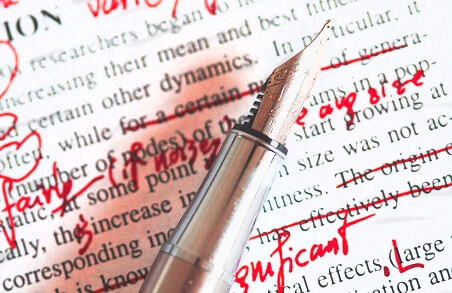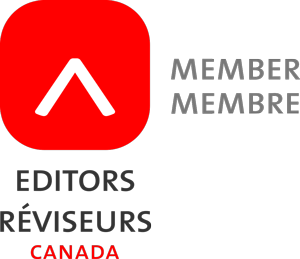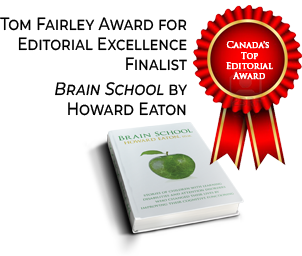Why do you need an editor?
Perhaps because of a lack of time, financial resources, or knowledge of the editorial process, perhaps because of fear of loss of control or originality, or for other misguided reasons, some authors feel it’s fine to dispense with the editing step of the publication cycle.
Other writers and professionals feel it’s enough to have their work reviewed by a family member, friend, colleague, or university professor. Congratulate yourself if you have not yet fallen into this trap. These folks are respected because of what they do—and they are not professional book editors.
Still others are certain their masterpiece is perfect as is—after all, they’ve gone over it dozens of times themselves. But the fact is that by the end of the creative process, the writer is simply too close to his or her own work to view it objectively. Most writers experience “manuscript fatigue” after months of revisions and rewrites, unable to see errors, omissions, or ways to improve their work. And it is also true that perfection in writing doesn’t exist. Writing is an art form—a very subjective one—and therefore always open to much interpretation and, alas, misinterpretation.
Moreover, if you’re seeking a traditional publisher in today’s competitive market, you’ll find that many agents will accept manuscripts only if they have been professionally edited first. And for self-publishing authors, if you still need persuading, look no further than book reviews on sites like Amazon and Goodreads, where one of the top complaints about self-published books is the lack of professional editing.
Having your manuscript edited professionally is not a frivolous option. Many first-time authors who have the foresight to engage a freelance editor are nonetheless shocked at the hundreds of changes and corrections an editor will find in what they thought was a near-perfect manuscript. Even established authors need editors, except they don’t have to be convinced, having been through the editorial process many times.
Nonfiction
A good freelance editor will view your ideas and writing with complete objectivity. A good editor will cause you to give your head a shake and say, “Why didn’t I see that?” I can spot flaws in an argument, weaknesses in overall book structure, or incorrect grammatical structure; or I can simply catch a poorly phrased sentence or paragraph, an inappropriate word, or misplaced punctuation. I have an almost photographic memory for the printed word, enabling me to recall and find inconsistencies that may have occurred hundreds of pages earlier in the manuscript.
Fiction
If yours is a work of fiction, I can assist you in developing motivated characters and realistic dialogue and in establishing strong point of view—often three of the most difficult areas for new authors to master. I can help you learn how to build strong scenes, which are the building blocks of an engaging, well-paced plot. I can target and smooth out inconsistencies, and I have a knack for spotting the tiniest of “plotholes.” I can view the big picture of a work, suggesting improvements in narrative pacing, scene-building, foreshadowing, backstory, theme, character motivation, and dramatic tension that will capture and retain your readers’ interest. Perhaps most importantly, I can assist you in developing a compelling and individual style—without losing the essence of your unique voice.
If you’ve been thinking that perhaps you can’t afford or don’t need editing, please think again. Don’t let your precious manuscript become a victim of your budget; wait until you can afford each step of the editorial process and publication cycle. Editing is essential in today’s competitive world of book publishing, and good editing can be one of your best marketing tools. This work is your legacy. You can’t afford not to engage an editor.
Learn about the steps to consider in hiring a freelance manuscript editor here.


